FIFA Club World Cup

In a dramatic display of resilience and opportunistic football, Guatemala delivered one of the 2025 Concacaf Gold Cup’s biggest upsets on Sunday, eliminating Canada in a tense penalty shootout after a fiercely contested 1-1 draw at U.S. Bank Stadium in Minneapolis.

A Clash of Momentum and Misfortune
Canada, widely considered one of the tournament’s frontrunners, started the match with a sense of purpose befitting their ambitions to lift a first Gold Cup trophy since 2000. Their early advantage materialized in the 30th minute when striker Jonathan David — ever composed under pressure — converted from the penalty spot. The opportunity came after D.C. United’s Aaron Herrera clumsily brought down Minnesota United’s Tani Oluwaseyi inside the box, gifting Les Rouges a golden chance to assert control.
However, football’s ruthless twists were soon to follow. Canada’s momentum was dramatically undercut in first-half stoppage time when Jacob Shaffelburg, one of the side’s most dynamic wide threats, was sent off for a reckless challenge in midfield. Reduced to ten men, Canada was forced into a defensive shell, inviting Guatemala to grow in belief and seize the initiative.
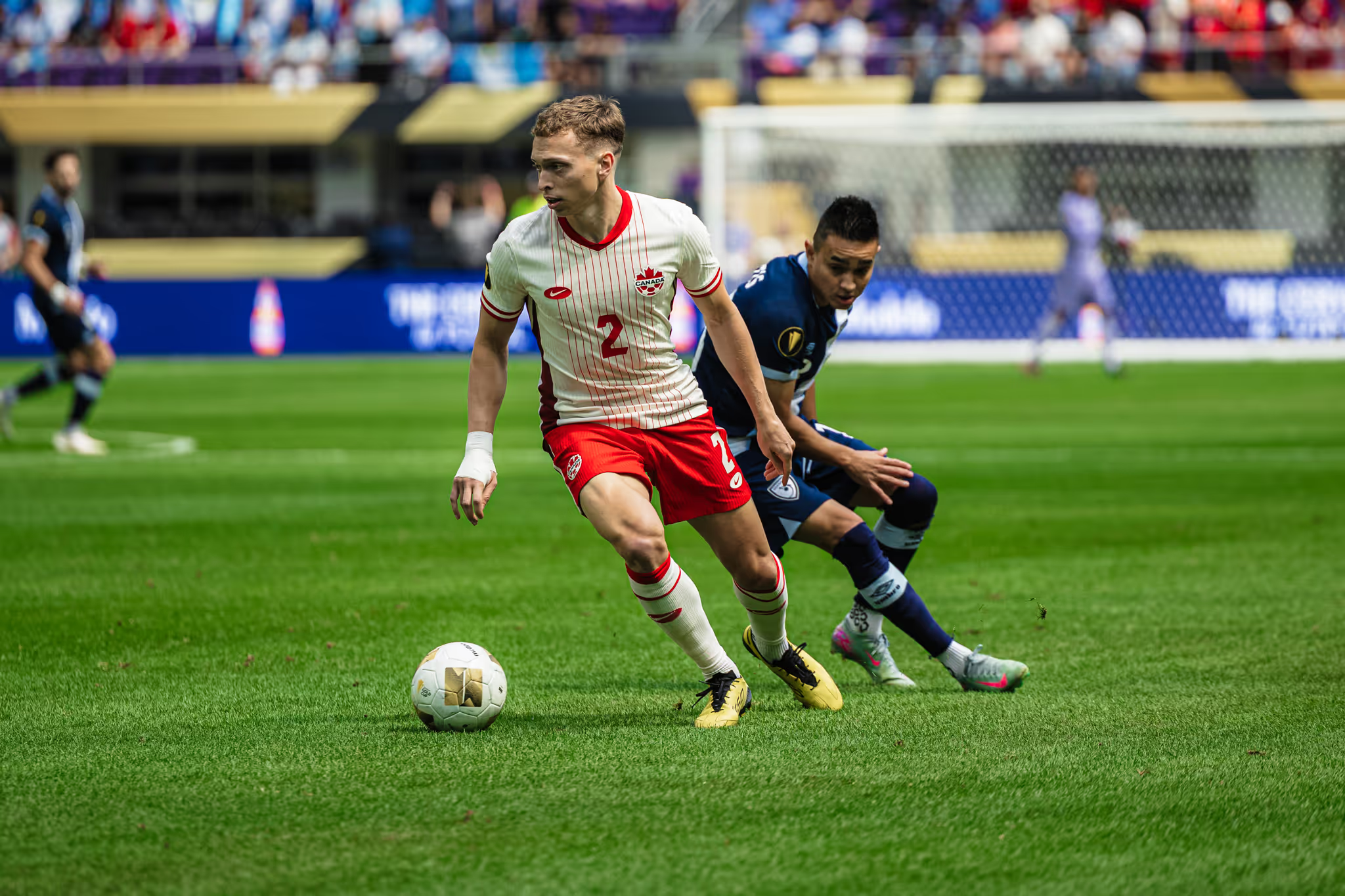
Guatemala’s Grit and Historic Moment
Rubio Rubín, who has become emblematic of Guatemala’s tenacious style, delivered the breakthrough in the 69th minute. Rising above defenders, he met an Oscar Santis cross with a powerful header that left Dayne St. Clair with no chance — the equalizer ignited a fervent belief among Los Chapines and their traveling supporters.
With both teams locked at 1-1 through regulation and extra time, the encounter inevitably headed to the nerve-wracking lottery of penalties. The shootout mirrored the match itself — tense, gritty, and defined by fine margins. When Canada’s Luc de Fougerolles saw his spot-kick cannon off the crossbar, José Morales seized the moment, dispatching his decisive attempt to clinch a 6-5 victory for Guatemala. Morales, whose composure under immense pressure defined the night, rightly earned Man of the Match honors.
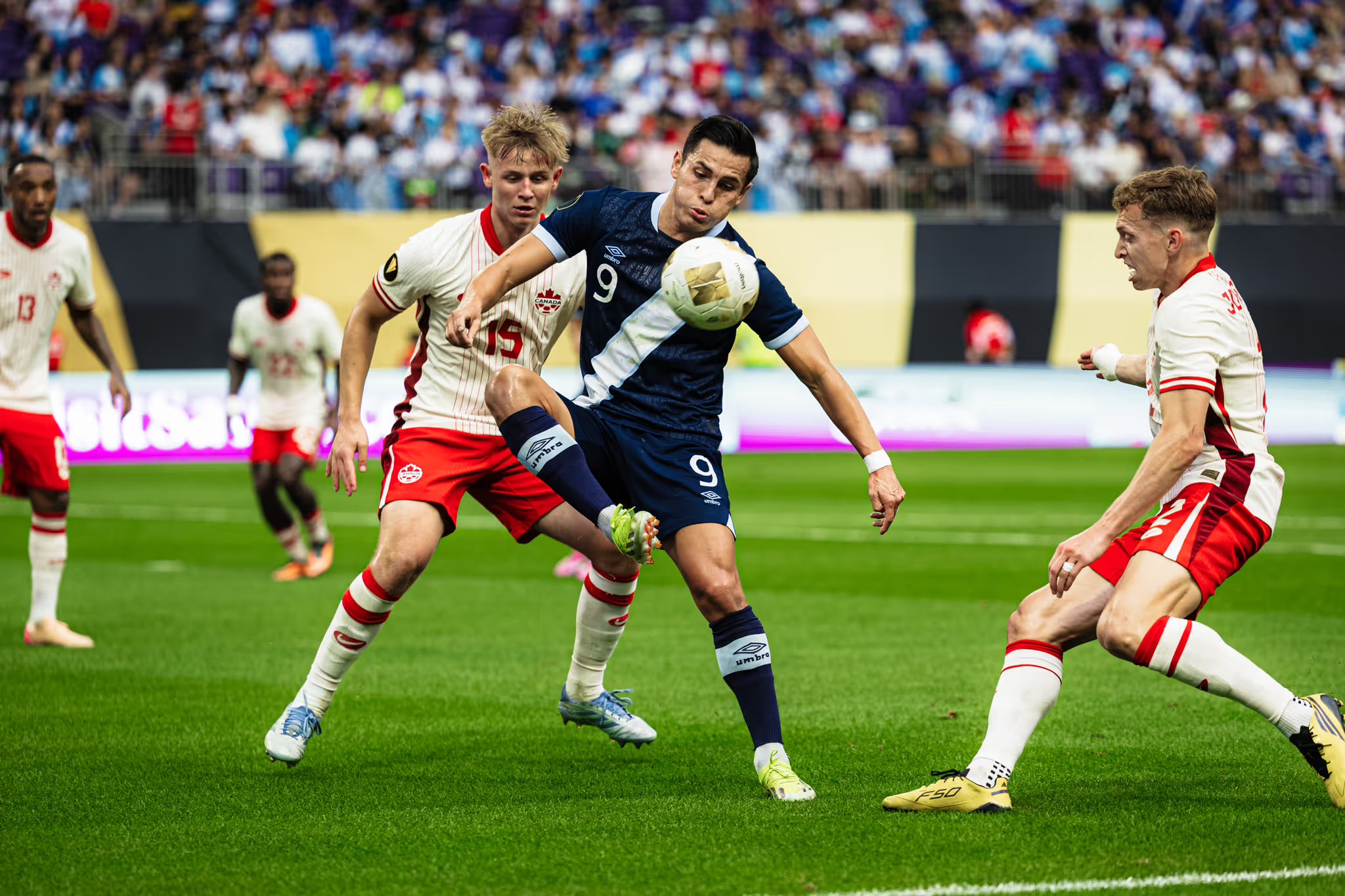
A New Dawn for Los Chapines
This landmark result propels Guatemala into their first Gold Cup semifinal since 1996 — nearly three decades of frustration, near-misses, and rebuilding have culminated in a run that has captured the imagination of a football-loving nation. It’s a testament to head coach Luis Fernando Tena’s commitment to instilling a fearless, high-energy style that thrives on disrupting opponents’ rhythm and capitalizing on transition moments.
Their next challenge is a monumental one: a semifinal clash with the United States in St. Louis. The Americans, playing on home soil and buoyed by their own quarterfinal win, will enter as heavy favorites. Yet Guatemala’s spirited, cohesive performance against Canada is a reminder that knockout football seldom adheres to expectations.
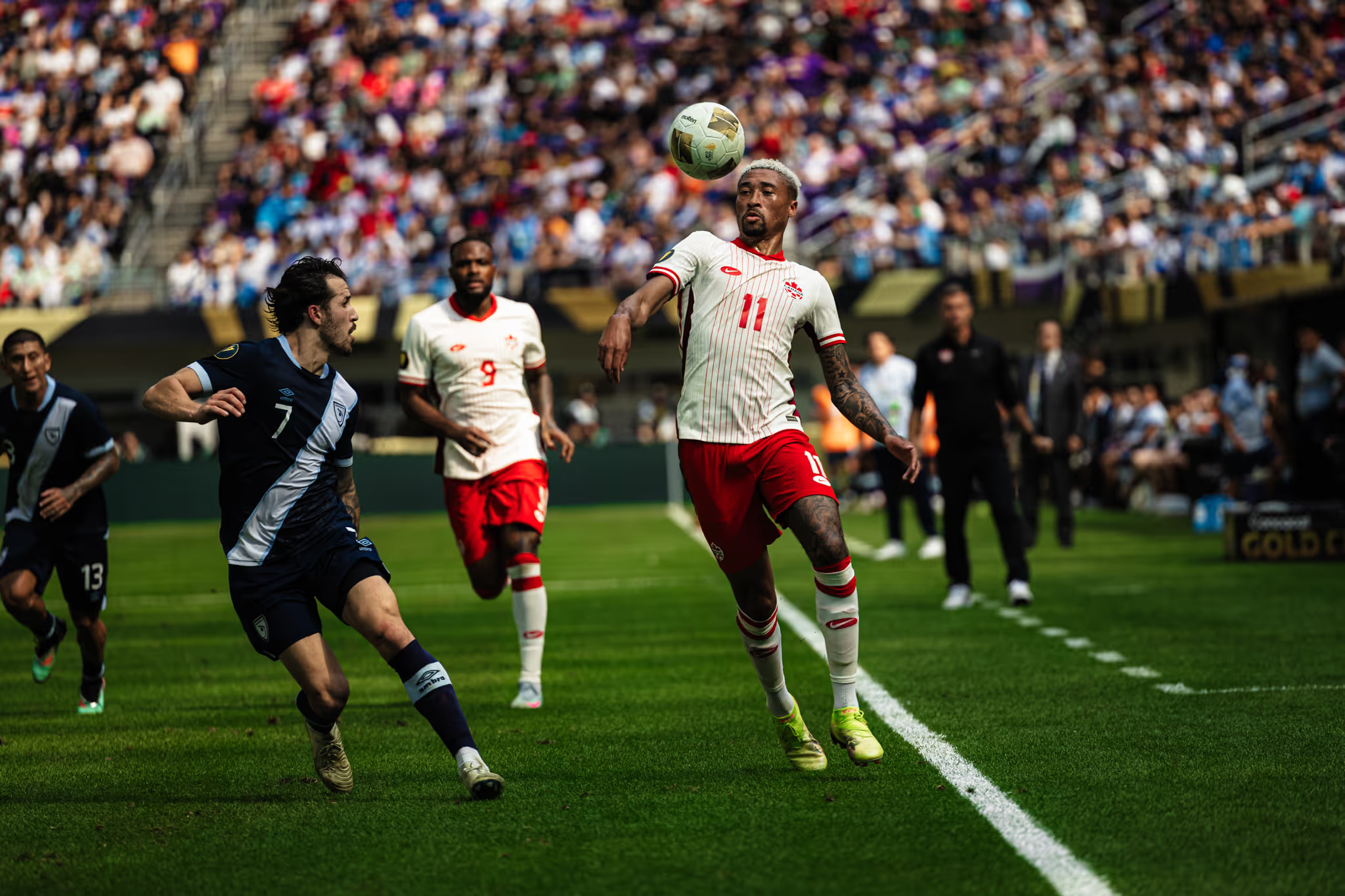
A Bitter Pill for Canada
For Canada, this defeat represents a significant setback in their bid to establish themselves as a consistent regional power ahead of co-hosting the 2026 FIFA World Cup. The loss highlights a worrying trend: promising squads and strong starts undermined by lapses in discipline and mental fortitude at key moments. Shaffelburg’s red card will undoubtedly be viewed as the pivotal moment, but Canada’s inability to kill off the game while a man down reflects a lack of adaptability that head coach Mauro Biello will need to address urgently.
Jonathan David’s performance remains a bright spot — his leadership and clinical finishing continue to underline his importance. But as Canada shifts focus to an upcoming friendly against Romania in September, the team must regroup and reflect on the tactical and psychological lessons from this Gold Cup exit.
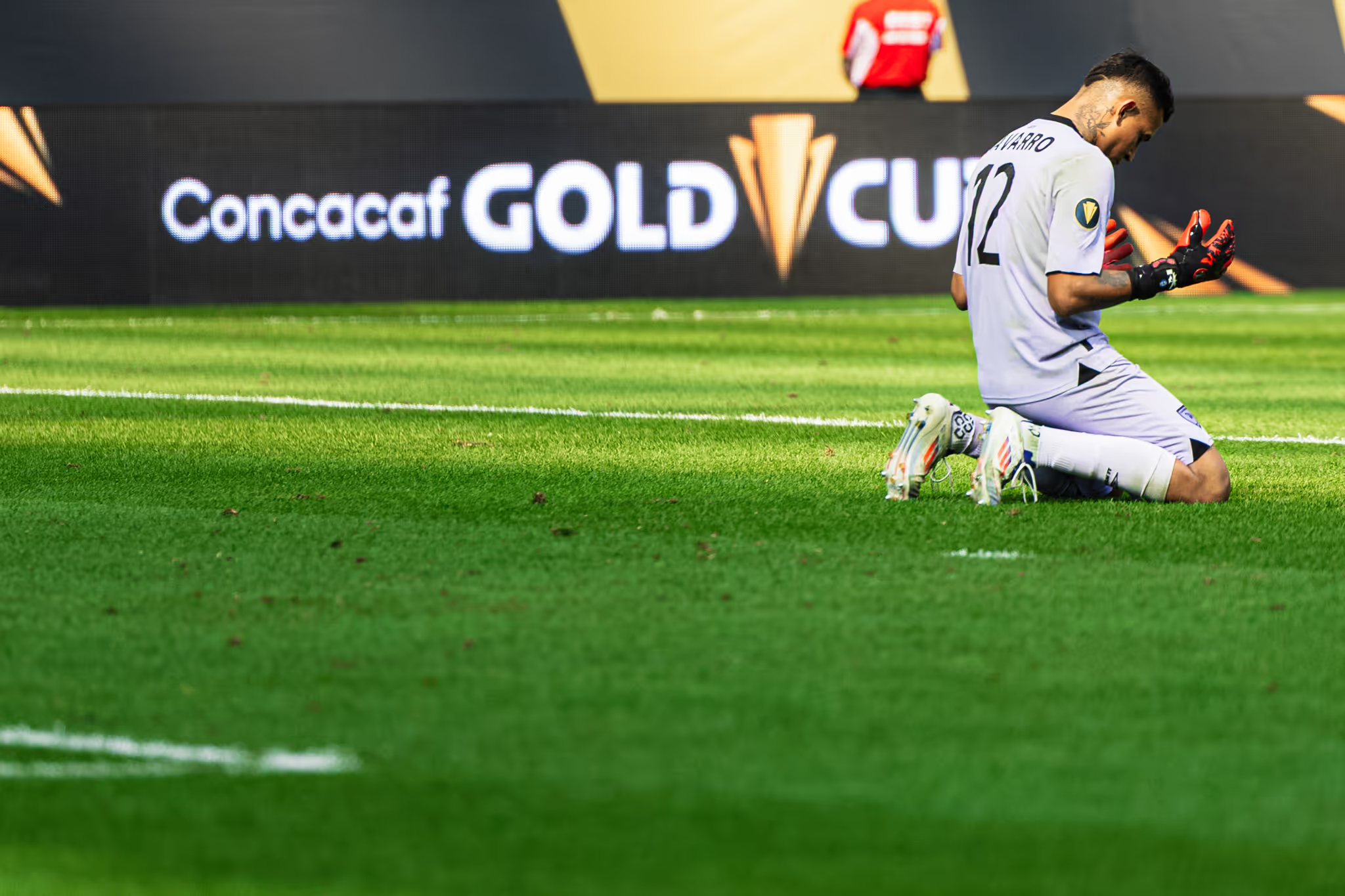
The Broader Context
Guatemala’s surprise run speaks to a growing competitive balance in Concacaf. Smaller footballing nations are increasingly capable of disrupting traditional hierarchies, thanks to improved domestic development and the rising influence of players based in MLS and other competitive leagues abroad. This evolution mirrors global trends where investment in coaching, infrastructure, and diaspora scouting has narrowed the gaps between football’s haves and have-nots.
Analysts have noted that such performances bring needed dynamism to a region often dominated by the U.S. and Mexico. “Guatemala’s upset isn’t just an isolated result,” says Concacaf analyst Jon Arnold. “It’s part of a larger story of nations refusing to play second fiddle. That can only raise the overall level.”
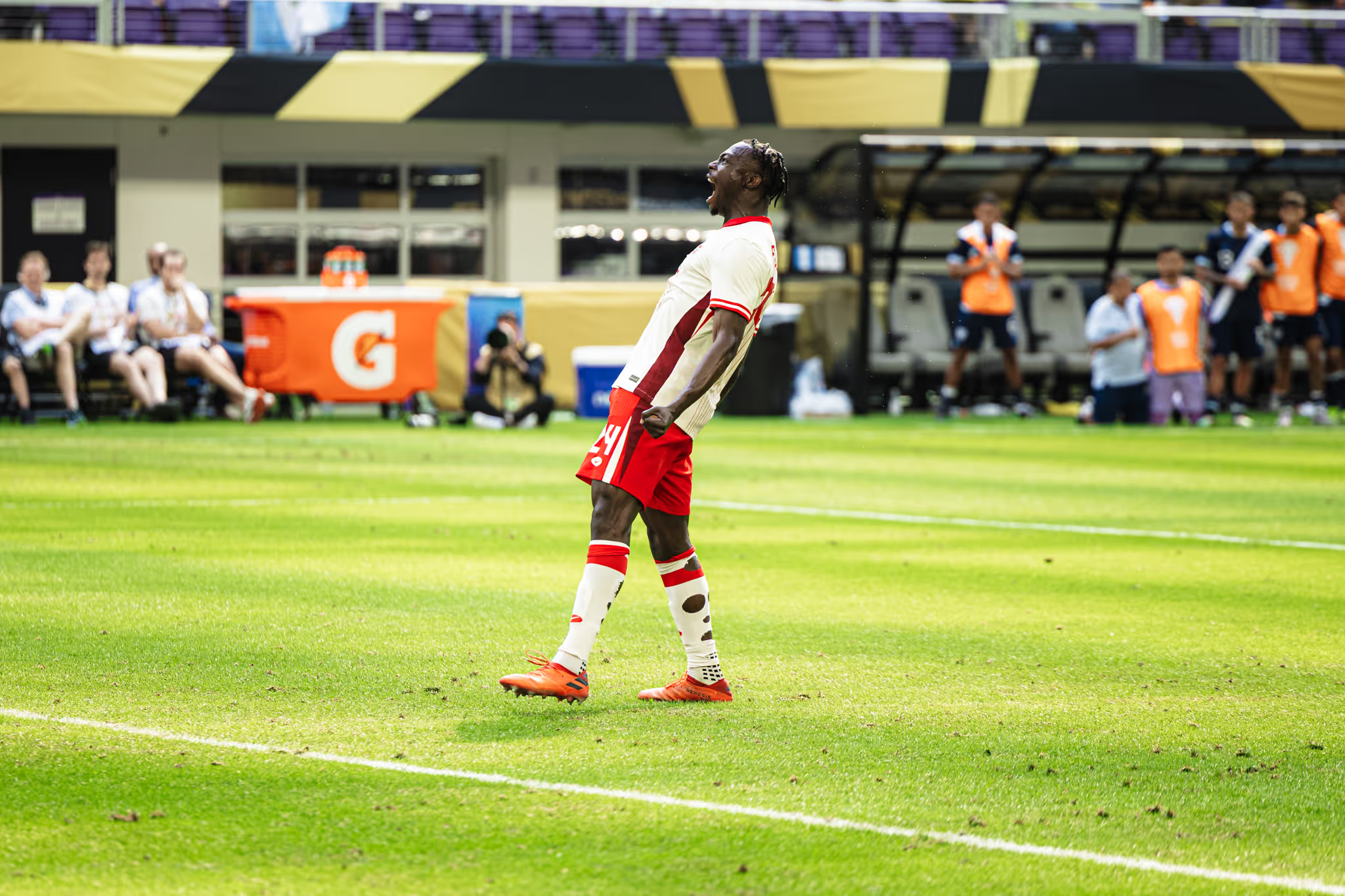
What Lies Ahead
As the semifinal looms, Guatemala’s underdog story will command attention far beyond its borders. Should Los Chapines manage to upset the U.S., it would rank among the greatest Cinderella runs in Gold Cup history — and perhaps inspire similar belief in other emerging Concacaf programs.
Meanwhile, Canada’s early exit underscores the reality that talent alone doesn’t guarantee trophies. For a country with growing expectations and a home World Cup on the horizon, learning to handle adversity and maintain discipline under pressure will be paramount.
Guatemala’s stunning triumph reminds us why knockout football is beloved: where a single moment can rewrite history and where underdogs, armed with belief and cohesion, can topple giants on the biggest stages.

Next Fixtures